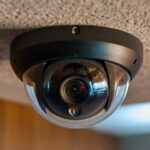As a small business owner, protecting your company’s assets is a top priority. From sensitive data and computers to inventory and vehicles, safeguarding these valuable resources against theft, vandalism, and damage is crucial for the success and longevity of your business. The most effective way to ensure round-the-clock protection is by investing in a comprehensive business security system.
Let’s review the four main types of business security systems, their functions, and associated costs, so you can make an informed decision about the best security solutions for your business.
Understanding the Costs of Business Security Systems
When considering the overall cost of a business security system, it’s important to break down the expenses into four main categories: hardware, installation and activation, business monitoring, and cybersecurity. Let’s take a closer look at each of these areas.
Hardware Expenses
The hardware component of a business security system is typically the most significant expense, ranging from $1,000 to $2,500. Keep in mind that this cost covers only one business location. If you have multiple locations or plan to expand in the future, the hardware costs will increase accordingly.
Installation and Activation Fees
Once you’ve purchased the necessary hardware, you’ll need to have it installed and activated by professionals employed by your hardware supplier. This service generally costs between $300 and $500.
Business Monitoring Charges
To ensure your security devices, such as alarms and cameras, are continuously monitored, you can expect to pay between $40 and $120 per month per device. Landline monitoring is usually about $10 less per month compared to cellular monitoring.
Cybersecurity Investments
Your cybersecurity plan should include standard cybersecurity applications, which typically cost around $50 per year for each device. However, more advanced and technically sophisticated software can come with a significantly higher price tag.
Calculating the Total Cost
When you combine all of these expenses, the average cost of a business security system in the first year, with one monitored device, is approximately $1,390. In subsequent years, the annual cost drops to around $170, excluding any maintenance or repair charges.
It’s important to note that the more assets you want to protect, the higher the overall cost will be. To potentially save money, consider asking your vendor if they offer discounts for purchasing multiple services.
The Importance of Business Security for Growth
Investing in a robust business security system is not only about protecting your assets; it also plays a vital role in fostering growth. A secure business environment boosts productivity, helps lower insurance premiums, builds customer trust, and can even improve foot traffic. By prioritizing security, you create a solid foundation for your company’s future success.
Types of Security Systems and Their Prices
Now that we’ve covered the general costs associated with business security systems let’s dive into the most common types of security equipment and solutions, what they protect, why you might need them, and their specific price ranges.
Video Surveillance Systems
Video surveillance systems, essentially security cameras, monitor the interior of your office or building as well as the surrounding exterior areas. By installing one or more cameras, you gain 24/7 visibility into the areas of most concern. Many systems offer live video feeds that you can access from your phone or computer, even when you’re away from the office, allowing you to keep an eye on employees and customers whenever necessary.
In the event of theft or damage, high-definition video footage can serve as valuable evidence when filing an insurance claim. Low-quality footage may not be admissible, so it’s crucial to invest in cameras with excellent resolution.
The cost of a four-camera video surveillance system, including equipment and installation by a professional security provider, starts at around $1,700. Most vendors charge monthly fees for access to live streams and recorded footage after the initial installation.
Alternatively, you can purchase security cameras and accessories separately, with many sophisticated home CCTV systems now suitable for smaller business premises. Expect to pay between $300 and $750 for cameras, but keep in mind that you’ll need to handle the installation yourself. If you want to watch and record live footage via the cloud, you’ll need to establish a separate agreement with a monitoring company. Before making a purchase, ensure that the cameras you choose are compatible with the monitoring company’s service.
Burglar Alarms
Burglar alarms protect everything inside your office, building, or store from theft, criminal damage, and vandalism. These systems act as a deterrent against employee theft and burglary while also ensuring the safety of your employees in public-facing environments.
When triggered by motion detectors, glass-breaking sensors, or other devices, a burglar alarm sends an alert to a 24-hour monitoring station. The station then notifies you, a mobile patrol, or the police within seconds of a suspicious incident.
The cost of supplying and installing a business alarm system depends on the size of your office or building. Budget between $150 and $600 for each sensor, plus around $100 to $200 for a system control panel. Monthly monitoring fees range from $40 to $120.
If employee theft is a significant concern, consider incorporating criminal background checks into your hiring process. A thorough background check can take up to 30 days to complete and will provide an overview of a potential employee’s past seven years.
Computer Security Systems
Computer security systems are designed to protect your business’s sensitive information, including files, documents, customer data, business software, apps, and other critical data stored on your IT network. These systems encompass antivirus software, firewalls, employee monitoring software, and more.
Investing in computer security solutions is essential for protecting your bottom line from costly data breaches. The best antivirus and internet security software safeguards small businesses from nearly all malware, spyware, hackers, ransomware, and other digital threats.
This protection is crucial because companies rely heavily on their IT systems to automate repetitive but necessary internal tasks. If a cyberattack causes your system to go down, the losses incurred by downtime can be astronomical. Even more devastating losses can result from a loss of trust and damage to your brand reputation if a breach compromises customer information.
The costs of computer security systems vary depending on the specific solutions you implement:
Firewalls: At a minimum, invest in a firewall to stop nearly all malware at the edges of your systems. Firewalls are hardware-based solutions that can cost $700 for small businesses and up to $4,000 for companies with more than 100 employees.
Antivirus software: Consider investing in antivirus software as a backup to your firewall. Antivirus solutions detect and neutralize existing threats and are more effective against internal attacks. Annual antivirus subscription fees range from $30 to $100 but may increase based on the number of devices you need to protect.
Cloud storage: Safeguard your information by hosting it virtually in the cloud through a top cloud storage service. Many of these services are free, while those that charge offer subscriptions starting as low as $5 per month.
Employee monitoring software: Implement one of the best employee monitoring solutions to protect your digital assets. For example, Teramind can track employee actions to flag data-loss risks.
For more comprehensive coverage, consider creating a cybersecurity plan for your company to identify potential threats and mitigate the risks they present.
Electronic Access Control Systems
Electronic access control systems allow employees and authorized guests to enter your business premises and specific areas while preventing unauthorized individuals from gaining access. These systems safeguard your building’s entrance against all unauthorized persons, including former employees.
Protecting sensitive or proprietary information, valuable equipment, and inventory can be challenging. However, limiting access and knowing who has access can make it easier.
Access control systems range from simple to sophisticated. For example, a small business may start with a straightforward keypad entry mechanism for a single door, while a larger company might implement a networked system using individually issued swipe or access cards managed by a central database. Some companies use biometric access control systems, ensuring employees can still enter even if they lose their keys.
Most businesses often require companies handling sensitive information to secure specific data with an access control system.
The costs for electronic access control vary depending on the hardware you implement and the number of doors you need to control. Budget $500 for keypad access control systems, while biometric authentication control systems run between $2,000 and $8,000. Additional charges may apply for control panels and software.
Investing in a complete business security system is essential for protecting your company’s assets, fostering growth, and ensuring the long-term success of your organization. By carefully evaluating your specific security needs and understanding the costs associated with different types of security systems, you can make an informed decision about the best solutions for your business.
Enhance Your Business Security with Live Patrol
As you consider the components of a comprehensive business security system, it’s best to partner with a trusted and experienced security provider. Live Patrol, Canada’s premier remote security service and live video monitoring provider, has state-of-the-art solutions that seamlessly integrate with your existing security infrastructure.
With Live Patrol’s AI video monitoring technology and human expertise, you can rest assured that your business is protected 24/7. Our impressive response time of under 10 seconds delivers rapid action in the event of a security breach, while our strategic location in the Greater Toronto Area (GTA) provides an advantage in coordinating with local law enforcement.
Whether you’re looking to enhance your video surveillance, implement access control systems, or bolster your cybersecurity measures, Live Patrol’s holistic approach to security delivers optimized performance, cost savings, and exceptional customer support.
Don’t leave your business vulnerable to potential security threats. Contact Live Patrol to learn more about our live video monitoring solutions and how we can help you achieve unparalleled protection for your valuable assets.


